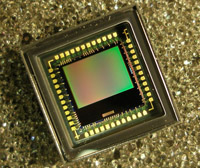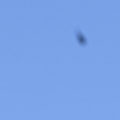 One of the most common questions that comes up when upgrading your digital SLR is whether or not to go with a “full frame” camera or stick with a crop sensor. There’s good and bad things about both types of cameras, but here are a few benefits of the larger “full frame” sensor: [Read more…] about Benefits of a Full Frame Camera
One of the most common questions that comes up when upgrading your digital SLR is whether or not to go with a “full frame” camera or stick with a crop sensor. There’s good and bad things about both types of cameras, but here are a few benefits of the larger “full frame” sensor: [Read more…] about Benefits of a Full Frame Camera
sensor
How to Switch Lenses on Your Camera

- Put your camera on a flat surface, so that the lens is pointing straight up
- Unlock the lens on your camera body, and turn the lens just a little bit so you can let go of the lens and it remains unlocked (but it’s still resting on the camera body)
- Remove the cap on the bottom of the new lens you want on your camera
- Hold the new lens in your right hand, and twist off the lens on your camera with your left hand
- Quickly mount the new lens with your right hand and lock it onto the camera
- Put the cap on the bottom of the old lens
What to do when you get sensor dust
 In a previous post, I talked about the importance of keeping your camera’s sensor clean. The best way to do that is to be extremely careful when you switch out lenses on your camera.
In a previous post, I talked about the importance of keeping your camera’s sensor clean. The best way to do that is to be extremely careful when you switch out lenses on your camera.
But, what if you still get a little dust on your sensor despite being super careful? [Read more…] about What to do when you get sensor dust
Book Review: Science for the Curious Photographer by Charles Johnson
 As a photographer with a science background, I’ve always been on the lookout for a good book on the science behind photography. Although Ansel Adams got pretty technical in his excellent books, they left me wanting to know more about how cameras, lenses, and sensors work.
As a photographer with a science background, I’ve always been on the lookout for a good book on the science behind photography. Although Ansel Adams got pretty technical in his excellent books, they left me wanting to know more about how cameras, lenses, and sensors work.
So, I started searching for the right book, and immediately found the comprehensive works of Rudolf Kingslake. But, his books turned out to be a little too technical for me.
Just when I thought my search for the perfect book had ended in failure, I ran into Charles Johnson and discovered his wonderful book, Science for the Curious Photographer. I’ve already read it twice, and I must say it’s the perfect book for anyone who wants to understand how their camera works. [Read more…] about Book Review: Science for the Curious Photographer by Charles Johnson
Why you should keep your camera’s SENSOR super clean
 Last week, I wrote a post about why it’s important to keep your lenses clean, and included an example photo to help illustrate my point.
Last week, I wrote a post about why it’s important to keep your lenses clean, and included an example photo to help illustrate my point.
Well, it turns out I was wrong about what caused those dust specks in the photo: they were NOT caused by dust on the lens, but instead resulted from dust on the camera’s sensor.
I’d like to thank Eric Pohl and Michael Smith for kindly correcting my error (see their comments on the original post). And, please accept my sincere apology for being wrong about this!
As Eric and Mike pointed out in their comments, dust on your lens will rarely show up in the end photo because you’ll always be focusing much farther than the front element of your lens (which is where the dust is). Ron Brinkmann put together an excellent article with great examples that helps show this.
For dust on your lens to be visible as specks in your photo, you’d have to be focusing your lens to an extremely close distance (even closer than what most macro lenses can do). So, any specks of dust you see in your final image most likely were caused by dust on your camera’s sensor. [Read more…] about Why you should keep your camera’s SENSOR super clean